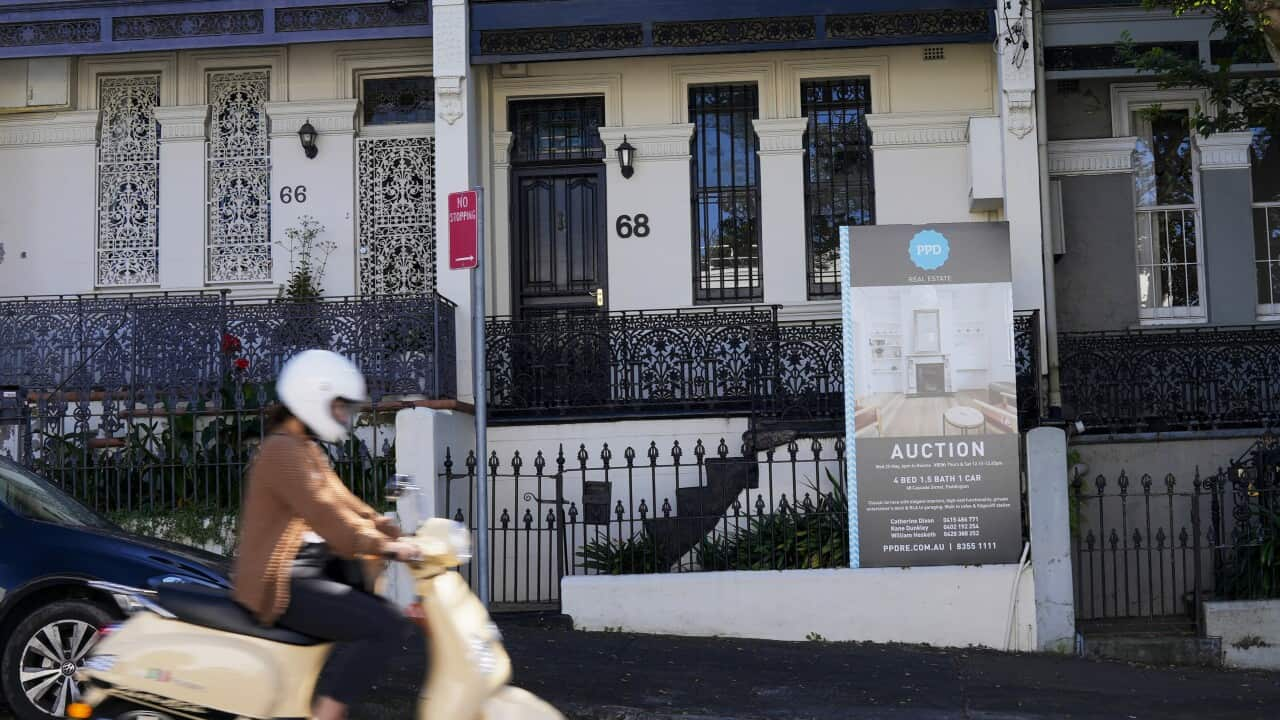Key Points
- Treasurer Jim Chalmers says the risk of recession in major economies has now tipped from "possible to probable".
- Leading economists say Australia is likely to fare better than most countries over coming months.
Treasurer Jim Chalmers says the risk of recession in major economies has now tipped from "possible to probable", but leading economists say Australia is likely to fare better than most countries over coming months.
High inflation will continue to fuel cost of living pressures for many Australians, the treasurer has said.
"If you look around the world, even in some countries where inflation has come off the peak, it’s still extraordinarily high by historical standards. So, we’re not out of the woods by any measure when it comes to cost of living," Mr Chalmers told the AFR.
“The global environment is a dangerous and difficult place right now. Even in the last month or two, the global situation has deteriorated dramatically. And in many of the major economies that we monitor most closely, the chances of a recession have edged over from possible to probable.”
So what exactly is a recession, is Australia likely to experience one, what will this mean for interest rates and cost of living over coming months, and what can Australians do to prepare?
Why is everything so inflationary and why could that cause a recession?
The current inflationary environment has been caused by various factors: sharp prices thanks to economic stimulus during COVID-19 combined with global supply challenges; the war in Ukraine elevating prices of oil, wheat and base metals; and businesses hiking prices to recoup their losses.
To combat inflation, central banks such as the Reserve Bank of Australia (RBA) have been trying to flatten demand through interest rate rises to relieve price pressures, while not putting the brakes on so hard that households and businesses pull back sharply on spending and tip the economy into recession.
A recession is commonly defined as having two consecutive quarters of negative growth in real gross domestic product (GDP).
Using this definition, Australia hasn't recorded a recession for 29 years since the early 1990s, a length of time the RBA describes as "very unusual".
"Most advanced economies typically record a recession around every seven to 10 years on average," it says.
The RBA says that during a recession, levels of household spending and investment by businesses tend to be low, while the numbers of households and businesses unable to pay back loans and the numbers of businesses closing down is "unusually high" - both factors that significantly increase the unemployment rate.
"Recessions inflict great hardship on households and businesses, and they can have long-lasting effects on both society and the economy," the RBA says.

The RBA has the delicate task of cooling the economy through rate rises that don't cause households and businesses to pull back too sharply, which could create a recession. Source: AAP / FLAVIO BRANCALEONE/AAPIMAGE
Is a recession on the horizon in Australia?
Some Australian economists say that while a recession may be plausible in some parts of the world driven by elevated inflation, energy shortages and heightened volatility in financial markets, it is less likely in Australia.
The RBA now expects GDP to grow by 3.25 per cent over 2022 and 1.75 per cent over both 2023 and 2024 - lower forecasts than three months ago.
Strong demand for labour is expected to see the unemployment rate, currently at a very low 3.5 per cent, decline to 3.25 per cent in late 2022, also lower than the previous forecast.
Chief economist at Westpac Bill Evans says "it's certainly plausible" that we may see a couple of negative quarters in 2023.
But he said with a very low unemployment rate at present, Australians shouldn't be too concerned.
"Normally, when you go into a downturn like this, the unemployment rate climbs quickly. We expect the unemployment rate to rise to 4.2 next year, but because it's coming from such a low base, most people will keep their jobs," he told SBS News.
Chief economist at KPMG Sarah Hunter agrees that while global conditions are likely to remain volatile, Australia is better placed than most.
"The probability of a recession here is lower than elsewhere," Ms Hunter told SBS News. "While conditions are likely to become more difficult over the near term, the strong recovery from the pandemic, which is clear in the GDP and employment data, means the economy is better placed than most other countries to weather the storm."
Craig James, chief economist at CommSec, believes forecasts of a probable recession in Australia are "a little pessimistic".
"Before COVID came along, we were in the midst of a record economic expansion. And while other parts of the world have gone in and out of recession, we've managed to avoid recession since the 1990s," Mr James said.
Mr James said Australia's situation is different to many other countries.
"Inflation is not as high, we've got a job market that is in sensational shape, we've also company profits at record highs and companies are in a very, very good position in terms of their balance sheets to be able to deal with any sort of situation," he said.
"We certainly don't have inflation as high as in other parts of the world. That may mean other parts of the world have to lift interest rates to a much higher level to get inflation under control."
How many more interest rises can Australians expect?
More of a concern for many Australians is the slowdown that will result from higher interest rates, with the RBA having delivered five consecutive hikes since May, with another expected this week.
Australia recorded an annual inflation rate of 6.8 per cent in August, down from 7 per cent in July, according to the Australian Bureau of Statistics. The RBA says it's aiming to use gradual rate rises to bring inflation down in the 2-3 per cent range next year.
Mr Chalmers said the government was expecting "the inflation challenge to get a bit worse before it gets better”.
Economists meanwhile expect inflation to peak at around 7.5-8 per cent later this year.
Mr James said it may only take a couple more small rate rises by the RBA to bring inflation down to that desired level of 2-3 per cent.
"The Reserve Bank has indicated that we're getting closer to where we want to be in terms of interest rates. We think that interest rates are high enough already to slow down the economy," he said.
"It's the government's as well as the Reserve Bank's and our expectation that inflation will be coming down next year. "
Some economists suggest interest rates may be cut from 2024.
Will the cost of living then start to come down?
Unfortunately, economists say cost of living pressures are here to stay over the coming months thanks to supply issues, weather disruptions and business margins.
Ms Hunter said Australians should brace themselves for the unwinding of the temporary fuel excise cut, further upward pressure on food prices and the likelihood of another La Niña summer, which could cause more floods and disruption to food supply chains.

Economists say cost of living pressures are here to stay over coming months thanks to supply issues, weather disruptions and margins. Source: AAP / JOEL CARRETT/AAPIMAGE
"Social security recipients, including aged pension recipients, are likely to be feeling the pinch from cost of living increases more than most," she said.
When it comes to interest rates, she said Australians have so far "held up better than consumers in other countries", but she added that the full impact of higher mortgage costs is yet to be felt.
Mr Evans said as Australians become complacent to an inflationary environment with higher prices, business are realising they can get away with it.
"Businesses are now realising that they can raise their prices ... and they're taking advantage of that," he said.
What can Australians do to protect their finances?
With the potential for prices to keep rising across a range of good and services, it pays to do your research, Mr James said.
"Fuel is one of the biggest items in terms of purchases that we have to make each week. There are ways of minimising the cost there by using the latest apps and filling up when you see the price is lower at the bowser."
Consumers also have the power to say no, Mr James adds.
"Make sure you're getting the very best price that you can. Do your research, shop around and do comparisons, and shop in bulk where possible as well," he said.
"When economic commentators are talking about the word recession, you just need to make sure that your finances are in order, so that you're on top of your household budget, so you can deal with any challenges that come along."











